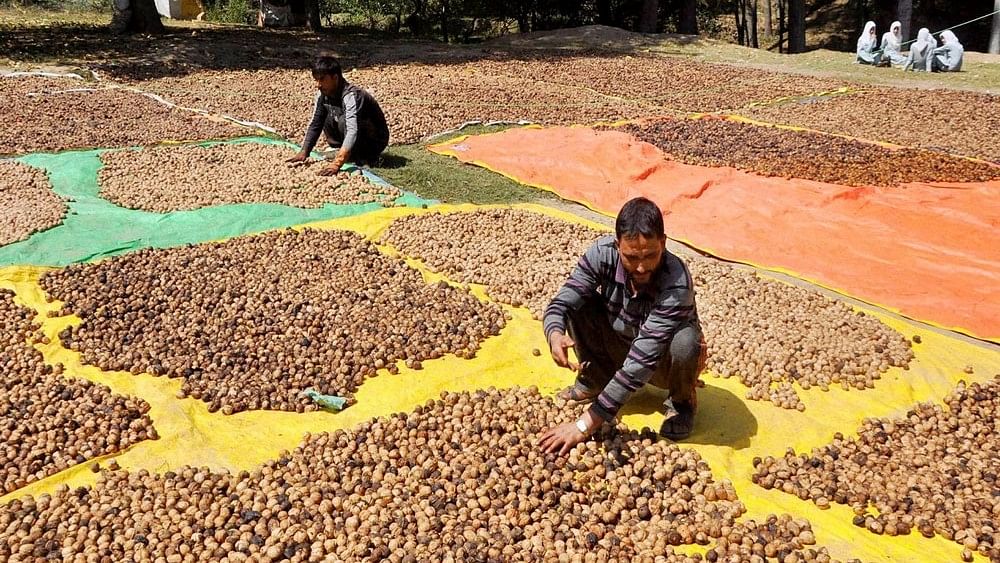
Kashmiri people display walnuts for sale at Aalamguni in South Kashmir’s Shopian district.
Credit: PTI
Once famous for its superior taste and quality, Kashmiri walnuts are currently in low demand in the national market due to heavy exports of dry fruits from the USA, China, Iran and Chile.
Kashmiri walnuts are organic, as no chemical fertilizers are used in the process of growing. With mounting challenges from rising imports, the producers in the Valley have been demanding to secure a Geographical Indications (GI) tag for Kashmir walnuts.
Pertinently, the GI identifies goods originating from a specific geographical location and having distinct nature, quality and characteristics linked to that location.
However, the growers say despite the superior quality of Kashmiri walnuts, their demand has been low across the country for the last several years due to the heavy exports of walnuts from foreign countries.
President Kashmir Walnut Growers Association Haji Bahadur Khan says the rates of Kashmiri walnut kernels have gone down by almost 50% this season.
“A high-quality walnut kernel, which used to sell at Rs 1200 per kilogram, has come down to Rs 700 per kilogram,” he said.
He cited the heavy imports of walnut kernels from the USA, China and Chilly to India as the main reason behind the downfall of Kashmir’s walnut industry. “The imports of walnuts from these countries started in 2016. There is no cap on the quantity of imports as walnuts from these countries have invaded the entire markets in the country,” Khan said.
Officials at the Horticulture Department said they have introduced superior-quality walnut trees to revive the dry fruit. “We are raising awareness among farmers to grow hybrid walnut trees. These trees suit our weather conditions and grow quality walnuts that can compete with imported walnuts,” they said.
The walnut production of the world, according to data from 2021, was 3.5 million tonnes, with China being the highest, producing one-third of it followed by the USA, Iran and Turkey.
The production of Jammu and Kashmir is around 0.3 million tonnes. Walnut, accodring to Kashmir’s historical records, has been an indigenous tree.
According to the Rajtarangni (A historical book of the Kings of Kashmir and North India of ancient times), the fruit culture which included walnuts dates back to 1000 BC during the rule of King Nara.